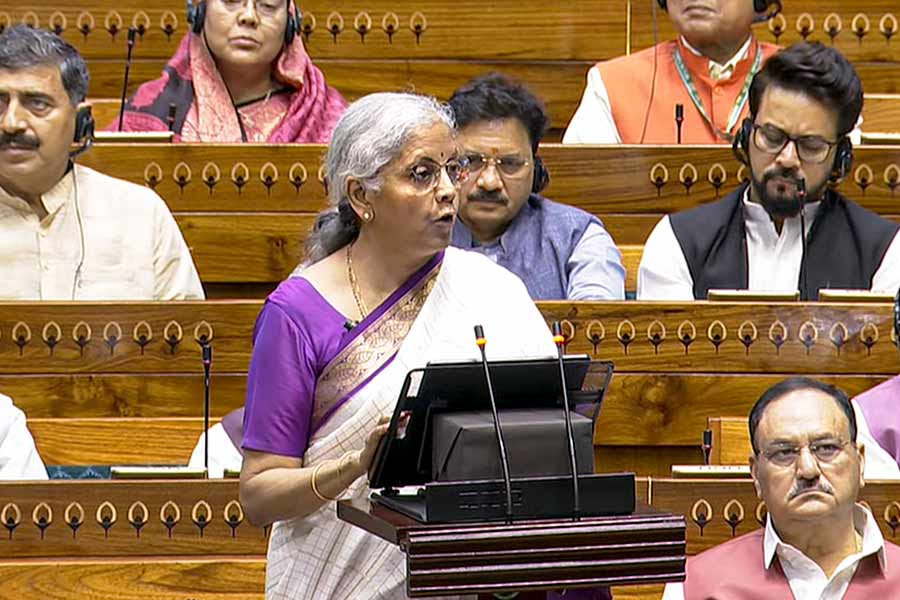In a city dotted with crumbling edifices, many owners of ageing houses were worried about the money they may have to pay in tax on selling their property after the Union finance minister announced the removal of indexation benefits while presenting budget 2024.
The owner of a century-old house said if the indexation benefit was taken away, any sale value would look like the owner made a mammoth profit and the tax would be calculated on that.
“Indexation would have allowed the owner to arrive at the value of the property factoring in inflation,” said the Calcuttan who requested not to be named.
“Suppose a property was valued at ₹30,000 many decades ago and is now sold for ₹1 crore. If the indexation benefit is taken away, the whole amount arrived at after deducting ₹30,000 from ₹1 crore would be considered as capital gains,” he said.
The apprehensions would resonate among many in a city dotted with old buildings that often fetch very low prices. The burden of paying an inflated tax could come as a double blow to them.
Financial analysts and tax lawyers said the fine print of the budget has to be read carefully to see if it offers any other advantage in compensation for taking away the indexation benefit.
One of them is already known: reduction in the rate of the long-term capital gains tax. “The rate of long-term capital gains tax has been cut down to 12.5 per cent from 20 per cent. This is a welcome change,” said a property owner.
“We should not arrive at a conclusion before going through the fine print,” said one lawyer.
Vivek Ruia, who owns the real estate company Swastic group, felt the impact would be “minor”.
“The rate of the tax has been cut to 12.5 per cent from 20 per cent and this will help owners of many old houses. We have to read the fine print to know exactly what
will change. Drawing a conclusion before that may be wrong,” Ruia said.
A section of tax consultants said that in some cases the reduction in the incidence of tax from 20 to 12.5 per cent may be beneficial to the seller.
Tax lawyers as well as property owners explained how the existing system works.
A valuer calculates the value of an old property and fixes the price as of April 1, 2001, which is the base fixed by the government. The “fair market value” of a property in 2024, or any other year after 2000, is calculated by multiplying the base value with an index published by the Reserve Bank of India (RBI) every year after factoring in inflation.
Indexation meant that the price of a property was inflated and brought to the value of the current financial year.
The fear is this fairness is being taken away.
Jyotirmoy Banerjee, who was one of the owners of a four-storey building in Kalighat that the family sold a few years ago, said the price of a property built in the 1930s would be ridiculously low compared to any sale value now, even if the sale value was really low.
The property they owned was built in two phases. The first two floors were
built in the 1930s and the upper two floors were added after WWII.
“Any sale value would look huge compared to the 1930 price. It may so happen that the sale value is lower than the fair market value of the property in 2024. If indexation is removed, the person will be paying huge tax even if the sale value is lower than the current market value,” Banerjee said.
“The real concern is the tax impact,” said Sushil Mohta, the chairman of the
Merlin group and the president of the state unit of the Confederation of Real Estate Developers’ Associations of India (Credai).
“But it will not have an impact on the sale of properties because that will depend on the market. The owner of an old property may delay the sale worried about the
tax impact, but a developer may agree to pay more if the project looks viable,”
said Mohta.











